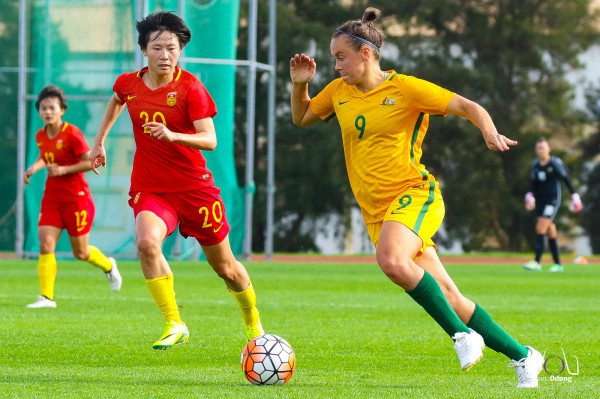FOOTBALL has had its fair share of chances to grab Australia’s collective minds since the turn of the century, all culminating in varying levels of success.
A fortnight ago though, football in Australia was given its most important opportunity to make its mark yet – the hosting rights (along with New Zealand) to the 2023 Women’s World Cup.
It’s the biggest sporting tournament to land on our shores since the 2000 Sydney Olympics, with the total viewership of the 2019 iteration reaching more than 1.1 billion people.
The Matilda’s have been one of Australian sport’s proudest sides in recent times and their success means they have the responsibility of taking an entire sport on its back and carrying it to new-found glory.
Football is in an unusual position compared to other sports in Australia.
It has the highest participation rate of any team sport in the nation (according to Sport Australia), but average A-League attendances are the second-lowest in competition history.
The World Cup is game’s best chance to find a way into Australia’s hearts and it is vital passionate fans, casual supporters and the Football Federation of Australia (FFA) allow it to be as grand as it deserves.
But it needs a total buy-in from all parties, or it will just be another example of a missed opportunity to stamp the game’s authority.
Just last week, the FFA released its “XI principles” for the future of the game, which described the 2023 tournament as a watershed moment for the sport.
It’s a good sign from the governing body, but it now needs to put in the time and effort to back it up.
We can’t afford another 2015 Asian Cup, where attendances and viewership was strong for the tournament’s duration as the Socceroos completed arguably their greatest ever achievement, but the sport as a whole failed to reap any rewards after its conclusion.
The Women’s World Cup needs to result in sustained progress for the game and affect all tiers from the grassroots up. Not just provide a financial shot in the arm for six weeks.
It’s also the responsibility of passionate football fans (life myself) to fully embrace the tournament to ensure it lasts a legacy.
We need to be buying tickets and scarves, urge our friends to get on board and make this all feel like the greatest Australian sporting event since Sydney 2000.
The job doesn’t stop there though. Football fans need to buy in and sustain the growth by attending A-League and W-League games and supporting future national team tournaments.
Finally, football needs to turn doubters into believers.
The sport has always battled for relevance against more established sports such as Australian rules, rugby league and cricket. Fans have forever put up with being told it’s not an “Australian” sport, despite Australian rules being the only game which could possibly lay claim to that title.
Fixing this viewpoint in the mainstream requires fans and administration to sell the game in the best way possible, but it also requires doubters to drop their preconceived thoughts on the sport.
Shutting yourself off to this World Cup means you’ll be missing out on the sporting event of a lifetime, so I urge everyone to get as excited as me.
We need to get up for the cup and cheer on our Matildas – the future of Australian football depends on it.









